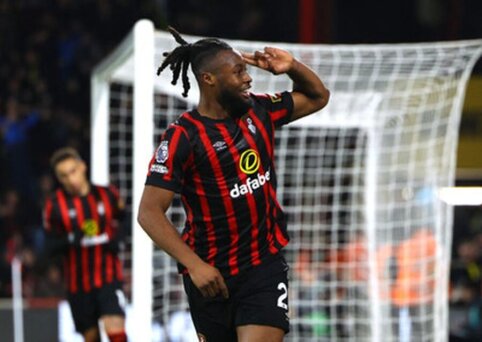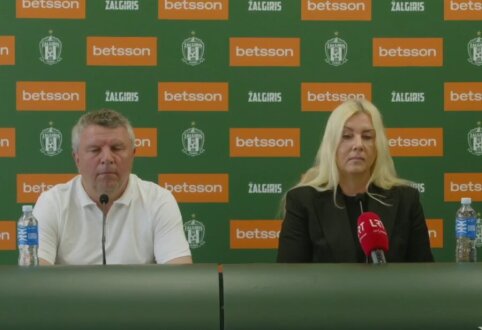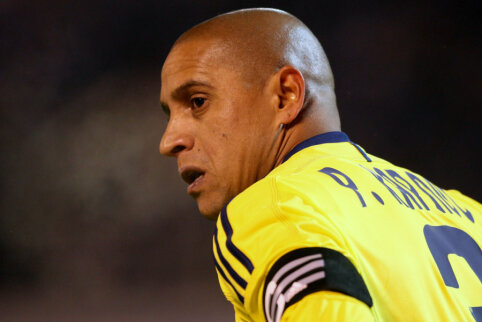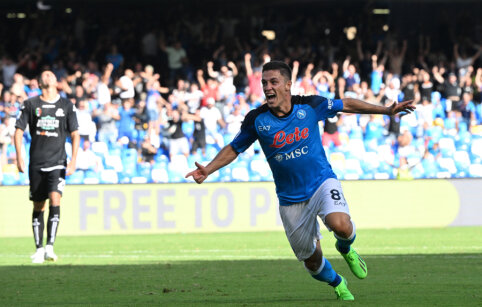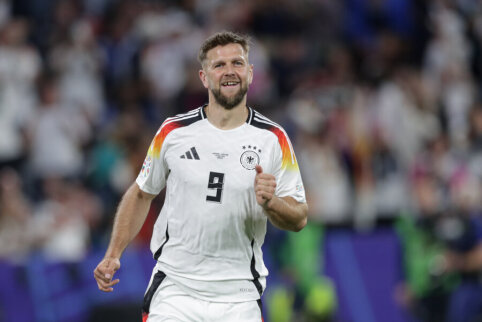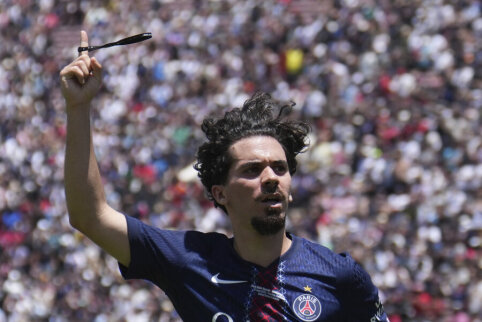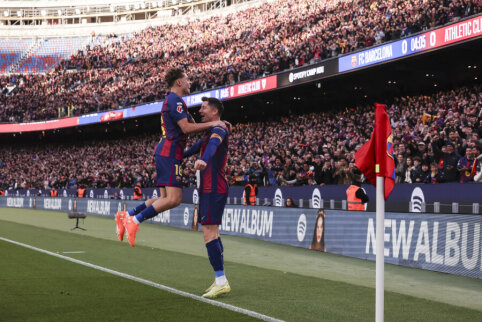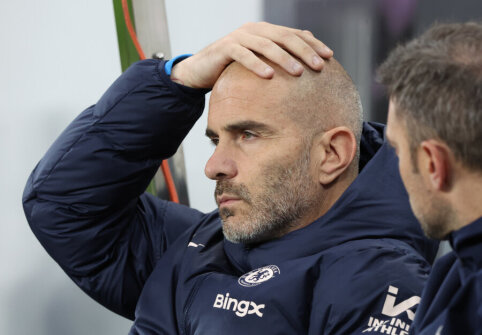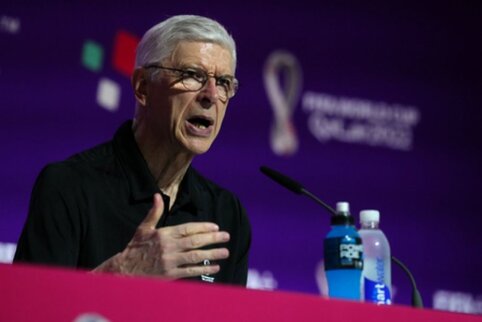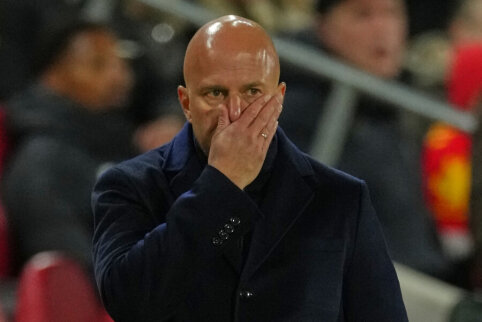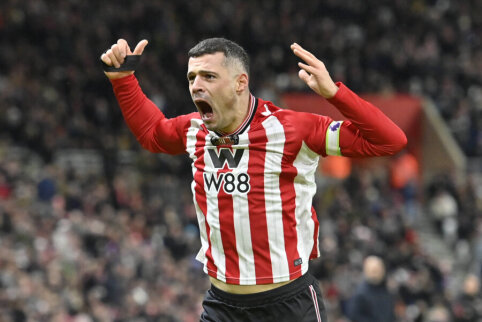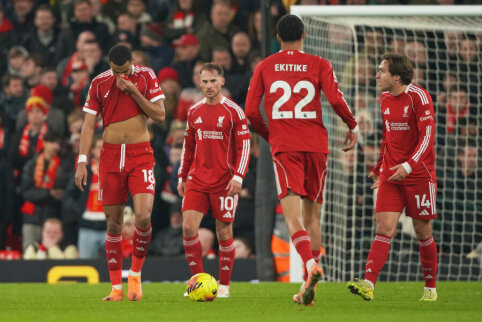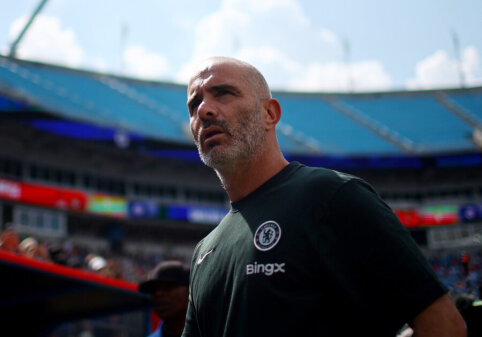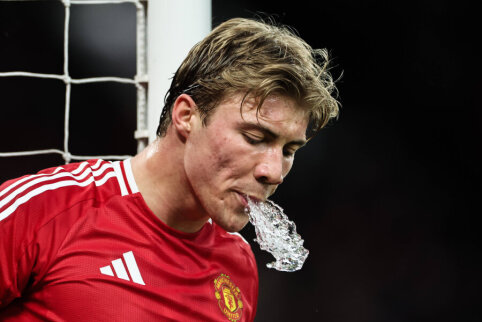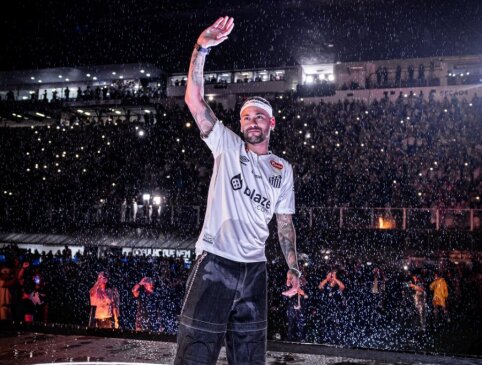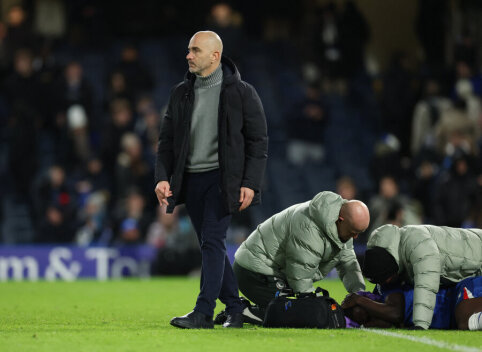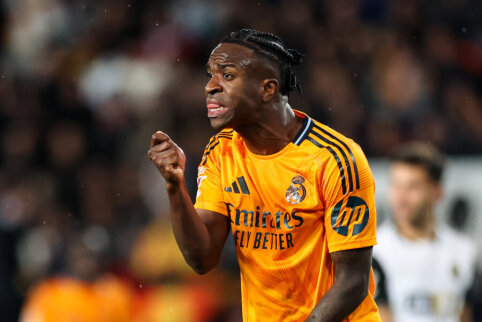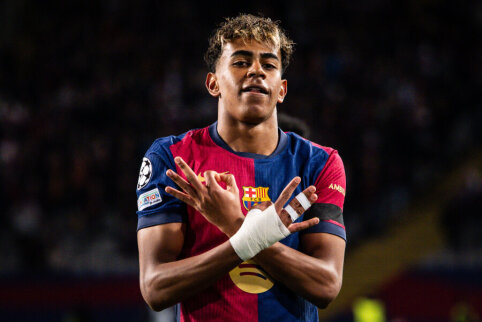![Article: Football Psychology, or when will Lithuanians play in the World Cup? [Part III]](https://www.eurofootball.com/img/uploaded/w900/2023/08/56545.jpg) © EuroFootball.com
© EuroFootball.com
EuroFootball.com readers are presented with a series of articles by publicist and writer Vilius Litvinavičius on the topic "Football psychology, or when will Lithuanians play in the World Cup?". In it, the author analyzes factors preventing Lithuanians from feeling like a country that has full-fledged football, tries to refute some facts with unusual arguments, and forces the reader to look at some simple things at least a little more critically. Here is the third part of the cycle.
First part of the series of articles
Second part of the series of articles
View of football from space and through a poet's eyes
Football is a simple and elemental thing. Everything worth knowing about it fits into a thin rule booklet. If it were a thick tome, no one would play such a complicated game in the world. The famous Tibetan Lama Lobsang Rampa would look at it differently. He claims that in his astral body, he can freely move in space and time, fly to other planets, and observe historical events described in ancient manuscripts. If we were to view all of football through his eyes, it would include everything not covered in the rule booklet... We wouldn't even need to invite that Tibetan magician to help us out, as we could simply read lectures peacefully in the United States. Satellite television gives us such opportunities. If we were to look at football from "space" and at the same time from up close, we would feel like in a forest, where the further you go, the more trees you count near the trail. Football becomes something indescribable.
It is played differently everywhere, there are European, Latin American, African, Oceanian, and Asian football schools, styles, which often radically differ from each other. The Ghanaian national team will never be mistaken for the Swedish national team. All you need to do is take a look at the game of those teams. And how many playing styles are there in Europe alone? English, Scandinavian, Italian, French, Spanish, Dutch, Greek, Slavic... You can list them by each country, and you will always find peculiarities. Even in Latin America, all countries belong to one school, but Brazilian and Argentine football are significantly different. If we were to compare Colombia, Uruguay, Paraguay... Even Asian football distinguishes two very different schools – the traditional Arab and the Far Eastern, whose main representatives are Japan, Korea, China, as well as the countries of the Indochinese Peninsula. Even in Africa, the Maghreb football school competes, very similar to Arab Asia and real African, represented by the so-called Black Africa. Who plays better, who plays worse, but football styles – just like languages, each nation has its own. So, football is a totally national game!
Football should reflect the nation's history, cultural characteristics. True football connoisseurs feel the national color and flavor of the game. Football history has become an integral part of world cultural history. Through football, a nation can express its character. In football, a nation can present itself as it really is, so it's not just a game. The game itself becomes a form of national mentality expression.
The 20th-century Dutch philosopher Johan Huizinga, author of the famous book "Homo Ludens" ("Playing Man"), would not be surprised by such things. He replaced the usual homo sapiens with homo ludens and claimed that the game is always an expression of all human endeavors, not just art or sport, but also religion, politics, economy, social class structure, rules of conduct. Everywhere, there are "our games." Only football stands out among them because it is an invented game in which a nation's psychology, frameworks, and possibilities can be expressed. Thus, football can reflect the nation's "soul" (a somewhat outdated term but widely used by 19th-century Russian philosophers).
Football is not just an expression, but also what can be the most original, poetic, even reflections of individual historical stages of a country. Writers, especially Argentinians, the majority of whom write about football with enthusiasm (imagine that, such serious people!), surround football with beautiful metaphors. Somehow, historical epithets naturally stick to football. Scandinavian footballers are called Vikings, Ukrainians – Cossacks, the French are compared to musketeers, the Italians with carbonari, the Germans with medieval knights, the Scots with kilted members of the clan highlanders, even in small English towns, the spirit of Robin Hood prevails in the clubs! Well, how can that not be compared to the legendary "Nottingham Forest" team, which represents nothing else but that famous Nottingham forest where occupiers and collaborators were shot with their arrows—still a historical figure that later became a legend, as scientists say. About the legendary nature of football a little later. Now let's look at the various football styles from "space," occasionally jumping back in time with a "time machine."
No, you will never confuse English and Portuguese football. Quite the contrary, unlike the Portuguese, the English are not inclined to hold onto the ball for too long; it just whistles from one player to another. Lightning-fast breakthroughs along the sidelines, and strikers stage a true "boarding" of the goalkeeper's area, like true medieval corsairs. The powerful maritime nations, the spirit of the legendary navy, reflected in English football. Plus, very tough, combative, true Robin Hood-like "rural" teams. Plus rationality and cold-bloodedness, the most characteristic features of the English nation.
The Portuguese do not like to run fast, the players reluctantly part with the ball. But slow Portuguese football is characterized by a certain attractiveness. Virtually every Portuguese defender can "shoot" from thirty yards so that the goalkeeper won't even have time to blink before the ball flies into the goal. Ultimately, interesting combinations, spectacular goals. In addition, dreamy Portuguese love theater as well, and that passion, as well as the attraction of exotic journeys, have characterized the Portuguese since the Middle Ages. Portuguese football is a theatrical spectacle.
If we were to look at British football again, we would immediately notice how Scottish football differs from English football. Much more conservative Scots have retained many of the features of the "elder brother" of football – rugby. Scottish footballers like to barge and nudge, they rush more "straight" towards the goal than the English. The Scots create numerous opportunities for goals, but very poorly utilize them. Often rushing in a straight line and densely, they leave too little space for a good shot, so sometimes one has to be content with just aiming the ball towards the goal. But the spirit of the clans' warlike nature shines through in Scottish football.
Scandinavians fight hard like true Vikings, far from being inclined to sit back in a defensive stance, as is often assumed. Swift Danish ground passes into the penalty area, relentless strikes without stopping the ball, tough Norwegian struggle "in the mass of players"... Scandinavians truly fight on the football field, without any mercy, but after the match, they start sobbing and communicating very friendly, smiling, laughing. It has long been noted that Scandinavian footballers, after fierce battles, are particularly friendly, and this is not a "ritual" or a demand of sports traditions, but genuine friendliness. It is as if the special sense of "community" specific to Scandinavians is revealed after football matches, as every sociologist emphasizes.
Those who say that Italian football is purely defensive probably haven't seen much of it. Italians truly do not like high balls, which is especially common among the English; in Italy, the ball is skillfully passed underground most of the time. But no one probably comes up with as fancy combinations as Italians. For those who like combination football, Italians are unique. But Italians are physically not very strong, so if they run too hard in the first half, in the second-half, around the 70th minute, Italian football basically collapses; tired players no longer pass the ball very accurately, and all the refined combinations naturally get tangled in the middle.
Spaniards, although belonging to the same Mediterranean school as the Italians, prefer aggressive football, longer passes, their strikers simply burst into the penalty area. Like the conquistadors of old times with their swords. By the way, if these aggressive attacks are successful, Spanish football commentators even call them "sword strikes."
Let's return to Northern Europe. Disciplined, often schematic German football. Discipline is like in the army on the field, very important are the pre-prepared schemes of the coaches, which the players unconditionally follow. Discipline plus discipline. At the same time, aggressiveness and the ability to "break through" defensive forts. For the German football most clearly reflects the nation's spirit, there is no doubt about it. A true military football. But this is not about a dead scheme, but much more the ability to create order in the "chaos of war." It also has several improvising players, but they work exclusively for the team. German football – a standard of collective play. It is especially interesting to watch how German footballers change positions, reshuffle like an army on the battlefield. Well, and of course, the Germans do not like Brazilians, who are particularly keen on improvising; In this case, the Germans simply do not have time to reshuffle.
Dutch football exudes the freedom of gesus, real cheekiness in attacking but often with casual defense. The Dutch, as representatives of a small country that crossed all seas and straits, try to "spread out" in football as much as possible. Their style is far from "homebound" gameplay. It seems as if the Dutch are carried by the wind; after all, they truly savor the taste of scoring a goal.
French football represents the history of the country. In French football, national mentalities are reflected much more than in German football. The French enjoy a fierce battle in the midfield, and all their achievements on the international stage are connected with the highest class forwards. There was the era of Michel Platini, there was the era of Zinedine Zidane. The French team is more dependent on the game and authority of their leader than any other team. But this clearly reflects the country's essential historical traits. The French nation is not so homogeneous; it is not a tribe but politically united. French kings united around the Parisian plot the Bretons, who are, after all, the same old Britons, Lorraine-speaking Germans, the Burgundians of German origin, Normans of Scandinavian origin, founded cities in the south of France or Provence, lived many Romans, founding cities here, and old Gauls, from which it is customary to trace the French, did not play a historical role after the establishment of the Frankish kingdom. Living only in rural communities, they most likely assimilated into the flow of French history. French history has always revolved around kings, spiritual and political leaders unifying the country. Thus, the leader's authority is also reflected in French football.
Similarly, French football has constantly been changing, with recent years seeing more and more characteristics of the Black African game. In some French clubs, there is an even larger portion of players from former colonies; quite a few team members of the national team were not born in France but "naturalized," ironically, one could say "sovietized." But for the French, who have always been leaning towards "synthesizing" everything, it is quite a natural thing. It is a strategy that is not contrived but fundamentally, as they say, ingrained in their blood. Hiring a player from Africa indeed means integrating him into society. Therefore, modern French football is a phenomenon of the integration and synthesis of two different continents. For example, the Soviets diligently integrated both Ukrainians and Georgians into their Russian model national team; the unique football schools have thus remained Ukrainian, Georgian, and even in the international arena have not created their unique style. But for the French, synthesis and integration are historically well-assimilated terms, and they are done, one could say, virtuosically. The royal integration school of Il-de-France continues to thrive in French football.
Also, French football has preserved the warlike spirit of the rural clans. Unique are the French Cup tournaments. Rural teams can eliminate Lyon's "Olympique," Bordeaux's "FC Girondins," PSG, and ambitious Marseille's "Olympique." In fact, in France, there isn't a single famous club that hasn't fallen in a cup match to the "villagers." In a certain amateur league, a rural team can oust a club known on the international stage, even, let's say, the country's champion or a prize-winner at that time. French Cup matches are a true drama. Every such match ends in tears. Winning country players cry with joy, the entire small village stadium celebrates. If an amateur team loses, all of its players, falling to the ground as if by command, cry out of anguish. Such battles and such views are unparalleled. After a village team's victory, a tremendous celebration lasts for almost a week; such scenes were described by the French classic Francois Rabelais (1494 – 1553) in his novel "Gargantua and Pantagruel," the pages are simply filled with descriptions of village celebrations, rivers of wine, tons of meats and cheeses, dances and sometimes quite open-mindedly unholy pleasures. In our times, French villages maintaining ancient traditions celebrate their football teams' victories.
Wait for the continuation.
